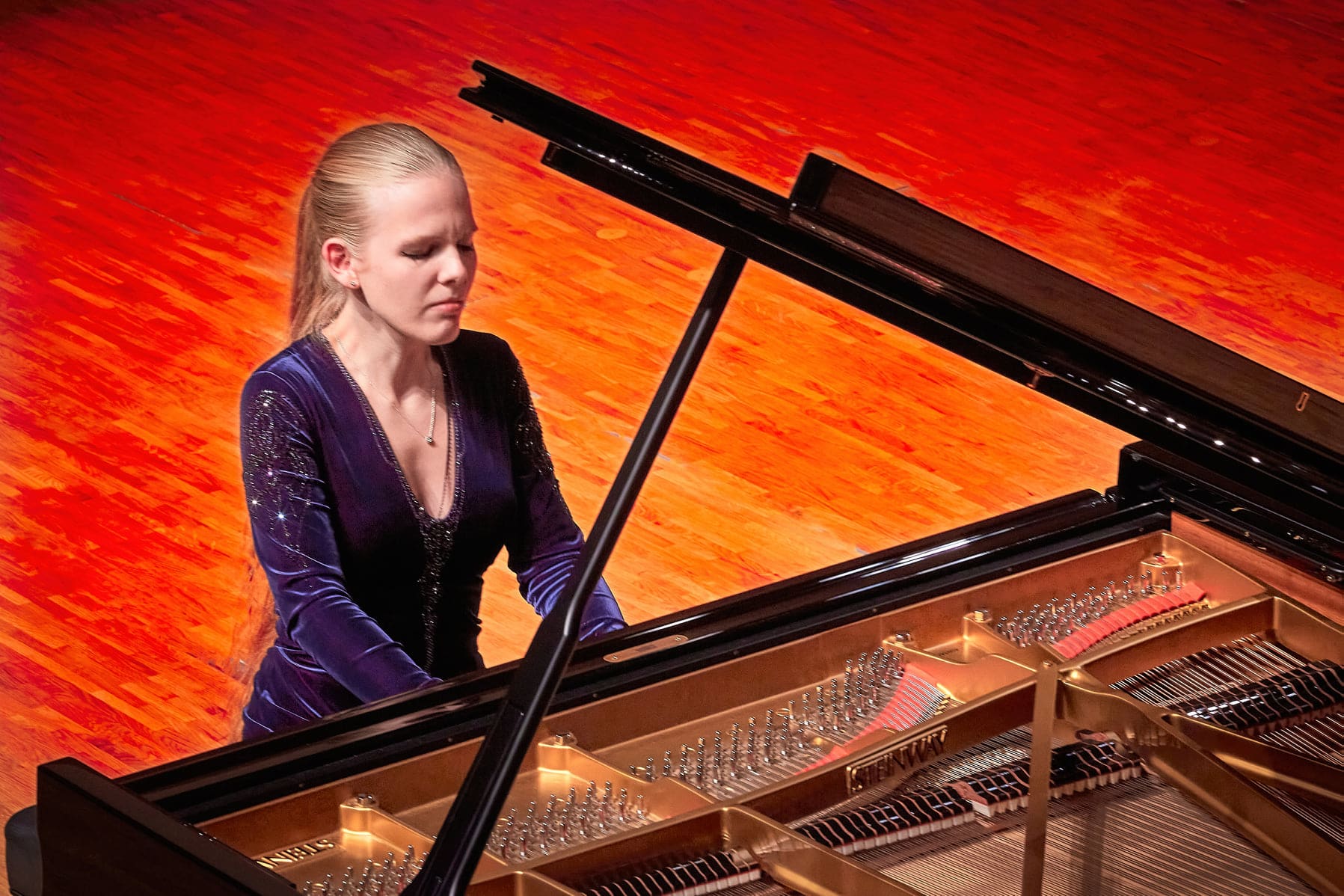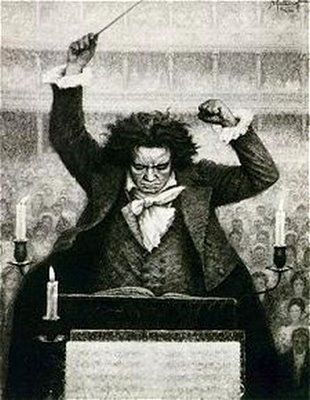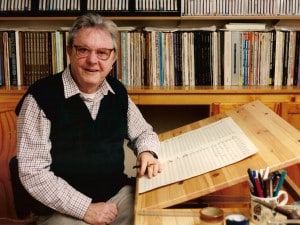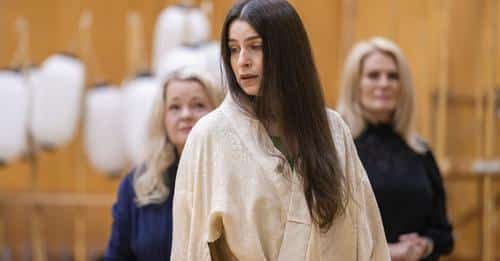Leeds competition will tilt towards women
NewsFrom today’s Observer newspaper:
Fiona Sinclair, chief executive of the Leeds International Piano Competition, told the Observer that female pianists are failing to reach the top of their profession despite an equal number of men and women now training at conservatoires.
She said: “Fewer than 23% of career pianists are women, yet in the conservatoires it’s roughly 50:50. As they leave college, the men soar while the women are not getting opportunities. The more we get into actual statistics, it’s clear that something’s broken. The problem persists at the top piano level – festivals, recordings, venues – with men generally dominating everything.”
Sinclair said they needed to take action as “only 18% of the most recent top 40 international piano competitions have been won by women”.
Odd – is it not? – that the world’s most sought-after classical pianists appear to be:
1 Yuja Wang
2 Martha Argerich
3 Mitsuko Uchida
4 Khatia Buniatishvili
5 Gabriela Montero
6 Helene Grimaud
7 Beatrice Rana
8 Maria-Joao Pires
9 Alice Sara Ott
10 Eva Gevorgyan (pictured)






I don’t think it is fair to summarise Ms Sinclair’s statement as a tilt towards women. I think she is saying that she is trying to remove possible sources of unconscious bias so that everyone’s chances are equal and quality is the sole determinant.
Her statistic is interesting but there is another possible interpretation, which is that some women interrupt their careers to have children and either find it hard to get back to where they were or decide not to try.
Do men not have children? I remember the brouhaha when Andris Nelsons dared take parental leave…
Pregnant women undergo physical and hormonal changes (especially if breastfeeding) that affect their lives in ways that you cannot comprehend unless you’ve live through it. It’s not like you just pop out the kid and you’re back to normal the next day.
Clara Schumann had 8 children and was of the most celebrated pianists in history.
The exception never proves the rule and, if my memory is correct, her husband had died and left her the sole provider for that large family.
She had the “help” to do it. And Brahms was the “manny.”
She had servants…
There are more men than women with IQs below 80 and above 120. Genetically, males have the role of introducing new mutations that might or might not be beneficial to their species, whereas females need to be more stable to ensure survival of offspring. Therefore males have greater variability in terms of genetic traits.
This is one of the reasons why there are more male than female ‘genius’ musicians. Not because they are better, but because there are more outliers, on either end of the spectrum
Thinking in terms of biological determinism like this is on the level of Josef Mengele.
What an ignorant, argument free, ad hom.
I think you’re onto something here. The distribution of IQ may be gender-specific in the extremes of the bell curve but there are probably other factors also at play which nobody would even dare explore or research.
That would explain many of your comments.
Ah yes, good old eugenics, how we missed thee (not!).
That doesn’t explain why more men win the competition.
Most women entering music competitions are not having babies in their early or mid-twenties, however – are they?
True, but how many men have never found success at international competitions and then gone on to fantastic careers??!!
Do you have any evidence for your claim that the 10 most sought after pianists are all women? If so could you publish it.
Statistics is not about the 10 most famous women pianists. It’s about ALL talented and professional women pianists.
We cannot fight facts. We are using them to see where are we doing wrong.
And Mrs. Sinclair is doing the very right thing in making a top international competition as objective as possible. It will also help men! Objectiveness is good for everyone (except for those who are less talented but have connections)!
Those in the group mentioned in your last sentence will find their one day in the sun at a competition, if you are correct in your less-than-veiled suggestion.
Names and addresses please!
Look at the repertoire list for this year’s competition. It includes the Clara Schumann concerto
We’re getting there !
If anything, that concerto, while great (especially for her age at the time of writing it!), exacerbates the hand-size problem that women face much more frequently than men with the concerto literature that orchestras know and will hire for. A friend of mine is working on it and has struggled mightily because she doesn’t have a generous 10th that would allow her to sit on some of those figures in the concerto. I would never be able to realistically prepare it (I have just an octave reach in my right hand). I had to do serious, almost co-composer-worthy alterations (luckily, I’m an accomplished composer) on one of her violin and piano romances for a gig recently because it was so ill-suited to my hand size.
Of course for many years the Leeds competition was itself run by the notorious misogynist patriarch…er…Dame Fanny Waterman.
I don’t know the politics of Dame Fanny, but I do know those of another woman who held a position of power: Margaret Thatcher. And, having recently sat through the tedious film Golda, I don’t see many women around her cabinet table either.
Until pretty recently, women in power were very keen to make sure they did nothing to bring women forward with them. They were not about being women, they were about whatever the job was.
Bravo. It’s so very lonely at the top.
I totally agree with all the measures being undertaken, but what’s missing from this is Leed’s own application percentages. If they are only receiving say 10:1 male to female applications, then the issues are as much to do with the marketing and branding of Leeds’ competition.
I understand that they’re trying to make a wider point and demonstrate that the competition is not biased, but I don’t think it is fair or very diplomatic to imply the issue is with their jury’s impartiality.
A passable representation at the very top does justify exclusion in the lower levels of the profession.
Perhaps you meant “…does not…”
you mean “does not justify”, right?
lol
Funny – when it comes to orchestras, the refrain is always ‘orchestra membership can’t be biased, BLIND AUDITIONS!!!’.
And now a competition does the same thing, and suddenly it’s a “tilt towards women”.
As for the list of 10 random pianist names, it would be ridiculously easy to make a list 10 equally big male stars. That there are 10 world-class, excellent, in demand women doesn’t mean there is no inequality. That’s the equivalent of the ‘the US can’t be structurally racist, Barack Obama was president’ silly argument…
“tilt towards women”? Just because someone is trying to to bring equal chances to everyone?
Come on Norman, you can do better.
The mention of blind auditions raises two points with me. Does this mean that the judges are not to be trusted to make an unbiased judgment? Second, is not the – let’s call it – “aura” of a performer, (especially pianists, violinists and recitalists) a vital, integral part of the performance that they are communicating to the audience?
Separately – and many won’t like addressing this elephant in the room – is it not possible that, for a variety of complex reasons, in any conservatoire that’s 50/50 it’s possible that there are more talented men at the end of their courses and separately that, in the big competitive world out there, there are more successful men? They could be better pianists?
Michael, your comment about the aura of a performer is absolutely right. Here’s a study from 2013 that proves your point. It’s a bit long, but worth reading. After sharing this study with a music teacher friend, he agreed and described it as “listening with your eyes.”
https://www.pnas.org/doi/pdf/10.1073/pnas.1221454110
It’s also partly a hand size issue. The concerti that orchestras know and will hire for, aside from Mozart concerti and those that bring kids on to play the Mendelssohn, generally require a solid and easy 10th to avoid undue wear and tear on the hands. Most women top out at an octave or small 9th.
Alicia de Larrocha had famously small hands, yet managed Albeniz and even Rachmaninoff … handily. And she had a long career.
Alicia had a 10th. She had extremely wide palms. People need to stop claiming she had small hands. A 10th is not small.
It’s in Earl Wild’s book “Walk on the Wild Side” he states that Alicia (who he knew well and admired) did have small hands but “wide stretch” as he put it.
It’s the number of notes one can span that counts. Handspan is a function of palm width, finger length and max angle of abduction. While Alicia could play a 10th (which an overwhelming majority of women cannot do) she probably didn’t have as big a reach as many male virtuosi at the time. She asked Steinway to make her a narrower keyboard like they did for Hofmann (and for Barenboim much more recently) but they refused.
Yes only a small minority of women (around 13%) can play a 10th, compared with 75% of men. The result is that most women’s hands are stretched out and flat across the keys when playing octaves and large chords, which means less power, compounded by a build up of fatigue. It is certainly an issue for concerti.
Just because you can list a bunch of famous pianists who are women, doesn’t mean there is no remaining problem with barriers to careers for women in this industry. Indeed, Bachtrack released an analysis of all 2023 performances listed in its database, and of the 10 busiest solo pianists in that data set, only one (Yuja Wang) was a woman.
https://cdn.bachtrack.com/files/350970-Annual%20classical%20music%20statistics%202023.pdf
Eva would look great with short hair!
It’s far odder, Mr Lebrecht, that you have failed to mention:-
Sir Stephen Hough
Lang Lang
Benjamin Grosvenor
Yunchan Lim…
…and so on, and so forth.
Ms Sinclair is absolutely correct. Women are routinely edited out of piano competitions – and plenty of other competitions, too. Default all-male semis and finals need to become a thing of the past. And please don’t fling around the word ‘quality’.
‘Inequality’ is the word which needs to be mentioned, because it is inequality which trickles down from unequal juries. Such juries are far too often packed with men – sometimes to the exclusion of including any women, at all.
Action – including unconscious bias training – definitely needs to be taken.
Ms Sinclair is so right about that.
This persistent sexist favouritism is getting boring, now. Classical music needs to get with the programme: and quickly.
Agree. Not to mention the ratio of female college professors to male.
It is almost entirely a hand size issue – we have a ‘standard’ piano keyboard today that suited male virtuosi in the 1880s who had average to large male hands. Prior to that keys were generally narrower. Women’s hand spans are on average one inch less than men’s …this has far-reaching implications that the major piano companies would prefer to keep quiet. A respected professor from the US has looked into possible jury bias and found no evidence. Nor is the gender imbalance apparent for string competitions. See http://paskpiano.org
The rationale of Fiona Sinclair’s piece is short on facts and heavy on baseless supposition and conjecture. ‘The more we get into actual statistics, it’s clear that something’s broken’ she says, when no actual statistics are mentioned. Who has counted the number of ‘career pianists’ on which she bases her argument? This smacks of the vacuous drivel that we find issuing forth from the new waves of executives in the music business, more interested in ‘delivering a diverse, meaningful and immersive real-time multi-media listener experience’ rather than promoting high-quality events and performances.
Fiona claims that men leaving the conservatoires are about twice as likely as women to have successful careers. Really? The chances of a successful career are heavily dependent on two factors: an excellent technique and an excellent manager. Impresarios are interested in turning bums on seats into money. If you are a ten-year-old pianist who hasn’t even entered a conservatoire and can play Fur Elise pretty well with a tennis ball held in each hand, then you’re in. If, at 21, you can play the Tchaikovsky First Piano Concerto very well, then you’ll have a good chance of making your debut at the Albert Hall and if you drive the audience wild, then the impresarios will be scrambling to sign you up. Money cares not about gender.
During the past century, a massive number of women pianists reached the top echelon; NL has only scratched the present-day surface in his list. The vast majority of them did not get there through the Leeds Piano Competition – indeed, many of them did so before it even existed. They got there simply because they were superb pianists. If there is a conspiracy theory to explain how women are being held back, do let’s hear more, Fiona. The conspirators have obviously failed!
Returning from Fiona’s fantasy world to planet earth, although her Leeds Competition is a prestigious event, it’s certainly not a ‘sine qua non’ for an aspiring world-class virtuoso. The Leeds is merely roadside entertainment compared with, let’s say, the Tchaikovsky or Chopin competitions. That’s not to denigrate the Leeds; it’s great to watch but simply not in the same league. Fanny Waterman got on with the work and, as far as I know, didn’t care about conspiracies and ‘unconscious bias’. Don’t become another Chi Chi, Fiona – one is enough.
Oh, and by the way, why is there only one black member of this year’s jury?
“The Leeds is merely roadside entertainment compared with, let’s say, the Tchaikovsky or Chopin competitions. That’s not to denigrate the Leeds”. I can’t wait to hear you “actually denigrate” something or someone!
Before anyone slam down hard on me & call me a sexist, have you considered the possibility of female competitors being outperformed in the concerto round because of their physical disadvantage/s especially in those warhorse concertos? Perhaps, female competitors should be given the option of playing Rach 3 with a slightly reduced orchestra (strings only though), for example. Female competitors often sound good if not better than their male counterparts up until the last recital round & then they would just be swept aside in the concerto round. Just look at the list of prize winners in the recent Tchaikovsky, Van Cliburn & Chopin competitions & you should be able to see the trend.
It’s a hand size issue, not necessarily something a reduced orchestra would help with. Most women have an 8ve or 9th reach. Most typical concerti require an easy 10th to avoid undue wear and tear (and then injury) over the course of preparing and maintaining those concerti.
It was common in my college/grad school days to hear “John’s hands are too small for a career, he’ll go into accompanying” or to see otherwise great players with small hands being encouraged to take up teaching children.
Hand-size has nothing to do with tone-size! It’s how one uses his/her hand (along with the wrist) to produce the tone, period. If you’re playing a B, C, or D Steinway, the keys dip twice – the first, half-way dip is silent, and the 2nd dip strikes the string. Snap the wrist as you depress the 2nd dip to create the size of the sound you want to produce.
I’m not talking about tone size, I’m talking about simply getting around the chords without overstretching and causing injury, as well as having to introduce rhythmically disruptive/motivically foreign rolls and breaks into the texture if they weren’t established early (as in Harmonies du soir, in which it’s perfectly expected to roll).
I have a big tone but my hands are so small that there is just a lot of repertoire that’s not feasible for me to play without real recomposing. I simply can’t reach all the notes.
This may be true to some extent when your finger/s are directly over the keys and there is time…but it’s not that simple in fast octave passages (for example) or fast broken chords (common in Beethoven) which means smaller hands have fingers more widely stretched (hence loss of power) and not directly over the keys. Pianists moving to narrow keys notice the greater power immediately. https://paskpiano.org/principles-of-ergonomics-and-biomechanics/
You’re right, the issue of lack of power is apparent in concerti. But the problem of female hands being too small can be solved by providing alternatively sized keyboards (interchangeable in a grand in minutes) so there is not the ergonomic mismatch with a keyboard that is too large and commonly leads to injury, or the pianist tolerating pain while playing.
http://strettopianoconcerts.org/
This solves another issue–women (or anyone with really small hands) have to move around a lot more to reach wide arpeggiated figures or land large leaps. That requires much better arm proprioception and technique in general. So in order to play the same repertoire at the same level, a small-handed player must have significantly better technique and athleticism than their large-handed colleague.
Nice job there, just making up a top 10 list based on “appearances” lol
You clearly did not understand Sinclair’s statement. 1) She mentions removing possible bias, and that should be welcomed by everyone, including men. Men are also victims of bias as well, after all. 2) She CLEARLY and I repeat, CLEARLY makes the argument from statistics, and yet you have the audacity to mention a few popular female pianists thinking it would constitute a counter argument?? Well I could easily give you 100 top male pianists then? Also, the argument she makes is not just for those at the top, but in GENERAL. So again, you missed her point there.
No matter how great a woman pianist may be, the international concert-pianist profession doesn’t lend it self well to a woman: Having to travel all alone, being at the mercy of lecherous male conductors, being separated for months at a time from her spouse and her children – isn’t exactly a woman’s idea of a good time. It’s a miserably lonely profession – hard enough for a man, but much worse for a vulnerable woman.
Where is Olga Kern, Janina Fialkowska, and Angela Hewitt?
Leeds Competition instruction to its distinguished jury: ‘All members of panels and juries are required to take Anti Bias Training which is aimed at eliminating both conscious and unconscious bias.’ How can you determine the unconscious unless you’re conscious of it? What a hoot – welcome to our brave new world!
Despite all this, the gender balance for major piano competition winners has not changed since the 1960s. There is a chart on this page: https://paskpiano.org/gender-differences-in-major-competitions-and-performing-careers/